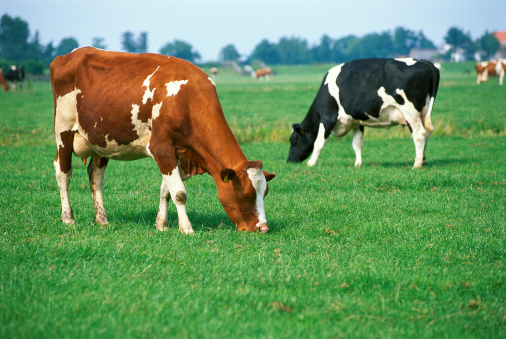
USDA finds meat from Northern Argentina can be safely imported despite longtime concerns about foot-and-mouth disease.
Northern Argentina is finally ready to start exporting meat to the United States, according to a proposed rule from the U.S. Department of Agriculture (USDA).
The proposed rule, recently issued by the USDA’s Animal Plant and Health Inspection Service (APHIS), would lift a 13-year old ban on certain meat products from Northern Argentina. APHIS originally adopted the ban in 2001 in response to foot-and-mouth disease (FMD) outbreaks from Argentinian cattle herds.
Current regulations prohibit, with some exceptions, the import of meat from regions where FMD is considered to exist. Uruguayan beef is one such exception and, although it is imported to the U.S., it is subject to more stringent restrictions than other imports. APHIS now proposes to allow imports from Northern Argentina, although the agency does not consider the region to be FMD-free, under the same import conditions currently imposed on Uruguayan products.
The proposed regulation is a response to a request from the Argentinian government that the U.S. reconsider its decision not to import fresh beef from Northern Argentina. APHIS conducted five visits to the region since 2003, most recently in 2013 and 2009, to review Argentina’s National Food Safety and Quality Service (SENASA) control and eradication program. APHIS concluded that SENASA had improved its disease surveillance and control procedures, and that meat could be imported safely from Northern Argentina.
As recently as 2012, the U.S. staunchly defended its ban on meat imports from Northern Argentina, even though the World Organisation for Animal Health (OIE) has recognized the area as FMD-free since 2006 and the 2009 APHIS visit showed promising improvements in SENASA’s disease control procedures. The U.S. and Japan filed complaints with the World Trade Organization (WTO) in 2012 accusing Argentina of implementing protectionist trade policies. Argentina responded several days later by filing a WTO complaint, alleging that the meat ban violates WTO rules and requesting consultations with the U.S. to discuss reinstating Argentina’s FMD-free status.
Argentina’s beef industry initially thrived for years after the U.S. embargo, until 2006 when the government temporarily banned beef exports in an effort to curb increasing domestic prices brought about by inflation. The halt on exports had the desired effect of lowering the cost of meat at home, but it initiated a decline in trade that moved Argentina from the world’s third largest beef exporter in 2005 to the eleventh largest by 2012, despite strong global demand. In the U.S., however, domestic production has remained fairly steady, even as prices have risen, and USDA data shows that the per capita supply of meat in the U.S. has remained consistent. The U.S. market has thrived so well that even the allegedly protectionist policies that lead the U.S. and Japan – the latter, coincidentally, was one of the top three markets for U.S. beef in in 2011 – to bring the WTO complaint against Argentina in 2012 were not enough of a bargaining chip to induce a lifting of the import ban.
The USDA may have treaded cautiously with respect to meat imports in light of the turbulent history over the last decade surrounding the Argentinian citrus fruit ban. The USDA initially banned the fruits based on evidence that citrus canker, a highly contagious disease that destroys citrus crops, had been found in the region. APHIS conducted several reviews throughout the 1990s of Argentina’s citrus growing regions, and, in 1998, published its proposed rule lifting the ban. In 2000, the USDA finally lifted the ban on citrus fruit imports from Argentina, much to the dismay of domestic growers. Growers in top citrus producing states sued the USDA, alleging that the USDA failed to consider other contagious citrus viruses, and suggested that the federal government was giving what amounted to “foreign aid” to Argentina and prioritizing improved trade relations over local industry concerns. A federal judge reinstated the ban pending further studies into the risks of importing Argentinian citrus, and the ban remains in effect today.
Public comments on the USDA’s proposal to lift the ban on Argentinian beef imports will be accepted until October 28.



